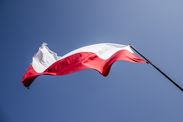-

Patryk Wachowiec: 1095 Days Later: From Bad to Worse Regarding the Rule of Law in Poland (Part I), Verfassungsblog | 2019-01-13
moreOn 13 January 2016, exactly three years ago today, the Commission activated the so-called rule of law framework for the very first time with respect to Poland. This was justified by First Vice-President Timmermans primarily with regard to the situation of the Constitutional Tribunal and the fact that some of its key binding rulings were not being respected.
-

Leszek Balcerowicz: Will the Rule of Law Hold?, Project Syndicate | 2019-01-11
moreThere can be no definitive answer. Still, the rule of law and the institutions that sustain it – whether courts, elections, or independent public agencies – have proven to be a source of greater resistance than many populist leaders expected, and more resilient, perhaps, than democratic forces dared to hope.
-

Marcin Zieliński: “Business Constitution” in Poland: Government Propaganda Instead of Reforms, 4Liberty | 2018-12-04
moreThe Law and Justice (PiS) government claims that the so-called “Business Constitution” is “the most important reform of Polish economic law for almost 30 years”.
The key goal of this document is to be the planned increase in the quality of making of business law and to improve the relations between public administration and entrepreneurs. There are five reasons why this is pure propaganda. -

Rafał Trzeciakowski: Poland’s Independence and Standard of Living in Poland, 4Liberty | 2018-12-04
more100 years ago, Poland regained independence, but its economic success started only 30 years ago. Neither the Second Polish Republic after World War I, nor the socialist People’s Republic of Poland after World War II managed to significantly increase standard of living compared to the United States.
-

Leszek Balcerowicz: Globalization and Its Critics, 4liberty.eu | 2018-11-14
moreThere is a massive literature on globalization (see, e.g., Bordo 2017). Therefore, I limit my comments on this fundamentally important process to a bare minimum (sect. 1). Instead I focus on the criticisms of globalization. Sect. II distinguishes three points of view of this process: economic, political economy and moral. In sect. III I briefly discuss crude anti – globalism of the nationalistic and utopian variety. Then I move to more sophisticated versions of the discussions of globalizations focusing on what I perceive to be lack of clarity, misconceptions or outright fallacies. Sect. IV deals with trade globalization and sect. V – wi th financial globalization. In sect VI I formulate some final observations and recommendations.
-

Aleksander Łaszek: Is Poland Really Developed?, 4Liberty | 2018-11-07
moreTransition of a country from the category of developing countries to developed one is a process that takes years. The change of category is a byproduct of institutional changes and accompanying increase in the level of living. Poland has been implementing reforms moving us toward market economy and democratic society since 1989.
-

Patryk Wachowiec: Rule of Law in Poland (or lack thereof): 7 Questions for the Article 7 Hearing, Euronews | 2018-09-17
moreLast December and for the very first time, the European Commission activated a provision of the European Treaties (Article 7 TEU) in relation to the rule of law situation in Poland. According to the Commission – a diagnosis we fully agree with – there was and still is a clear risk of a serious breach of the rule of law by Polish authorities.
-

Karolina Wąsowska: New Copyright Directive - new restrictions to online business?, EPICENTER | 2018-09-14
moreIn the second voting on the subject, the European Parliament approved the Directive on copyright in the digital single market. 438 MEPs voted in favour, 226 against and 39 abstained.
-

Aleksander Łaszek, Rafał Trzeciakowski: Just 5.6 Million People Produce Half of Polish GDP, 4Liberty | 2018-08-28
moreThe ongoing discussion in Poland regarding the high variation in wages and income inequality focuses on the way in which added value generated in the economy is distributed between employees (wages), employers (profits) and the government (taxes).
-

Marek Tatała: Sharing Economy in Poland Is Yet to Come, 4Liberty | 2018-08-27
moreTransport and accommodation are the two services most commonly associated with the sharing economy. However, the catalog of such services is much bigger. People allow strangers to put up tents on their lawns, grow vegetables and fruits on their land, lend their gowns for a party, offer workspace or room for a meeting.
